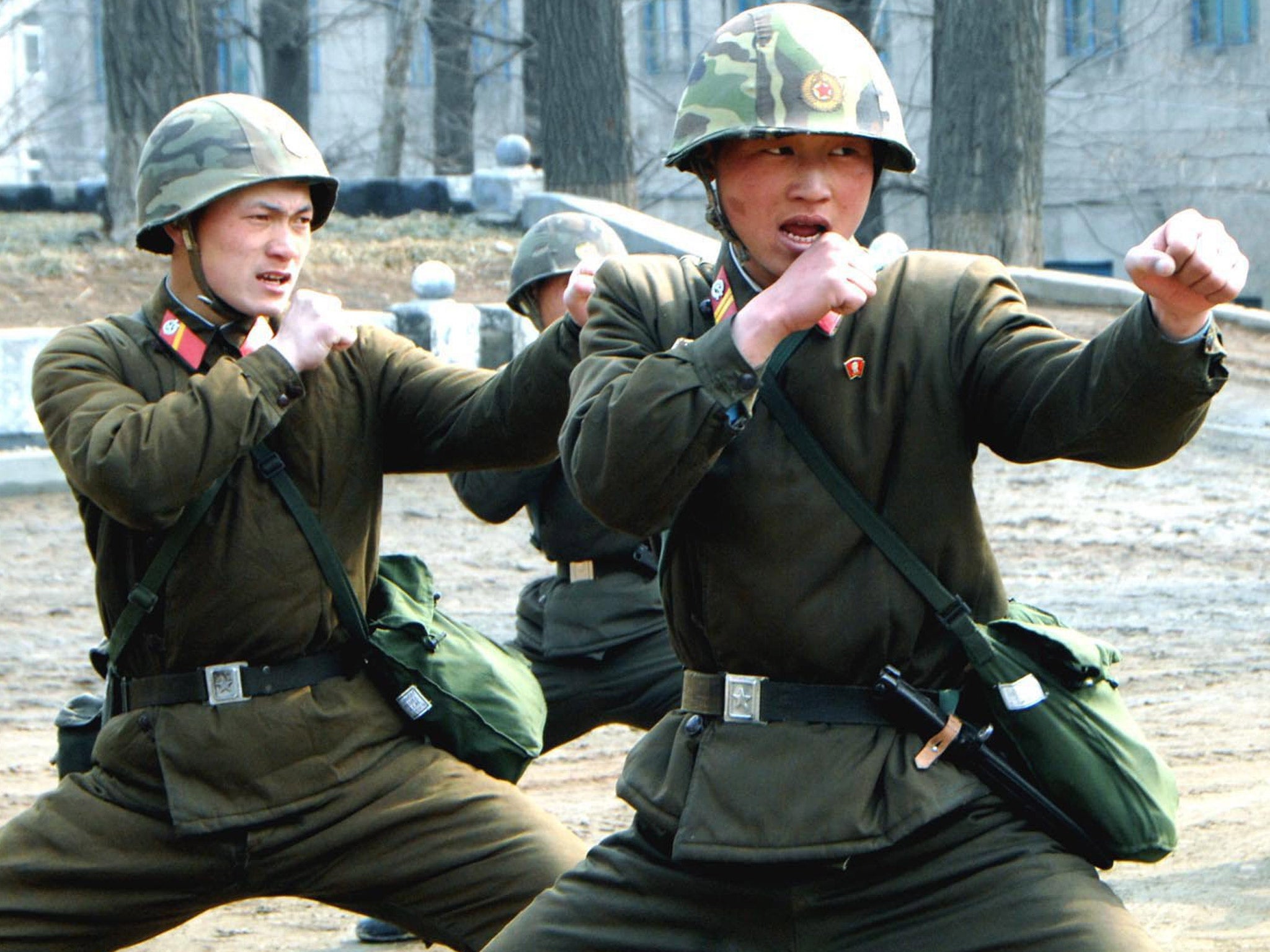North Korea cancels non-aggression pact with South as UN votes for new sanctions over missile tests
Pyongyang defied existing sanctions to conduct a nuclear test last month to provoke the US

Your support helps us to tell the story
From reproductive rights to climate change to Big Tech, The Independent is on the ground when the story is developing. Whether it's investigating the financials of Elon Musk's pro-Trump PAC or producing our latest documentary, 'The A Word', which shines a light on the American women fighting for reproductive rights, we know how important it is to parse out the facts from the messaging.
At such a critical moment in US history, we need reporters on the ground. Your donation allows us to keep sending journalists to speak to both sides of the story.
The Independent is trusted by Americans across the entire political spectrum. And unlike many other quality news outlets, we choose not to lock Americans out of our reporting and analysis with paywalls. We believe quality journalism should be available to everyone, paid for by those who can afford it.
Your support makes all the difference.North Korea is cancelling a non-aggression pact with South Korea and reiterating past threats in anger over a UN Security Council vote to impose more sanctions for its third nuclear test.
The statement the North issued today comes after the council levelled tough new sanctions targeting its economy and leadership.
The council voted unanimously to approve a new set of sanctions on North Korea in response to Pyongyang’s third nuclear test last month, notching up the pressure on the secretive state only hours after it vowed to launch a pre-emptive nuclear strike against the United States.
At the UN, the resolution was drafted by the US and China – the North’s longstanding benefactor – and was backed by all 15 nations on the Security Council. It will tighten financial, travel and trade restrictions on Pyongyang, and limit the country from importing a number of specific luxury items such as yachts and high-end cars.
The UN Secretary General Ban Ki-moon said the move was an “unequivocal message” to the country that the world “will not tolerate its pursuit of nuclear weapons.” Earlier, North Korea, which is led by Kim Jong-il’s youthful successor Kim Jong-un, launched an inflammatory tirade aimed at the US, warning of a pre-emptive strike.
“Since the United States is about to ignite a nuclear war, we will be exercising our right to pre-emptive nuclear attack against the headquarters of the aggressor in order to protect our supreme interest,” an unnamed foreign ministry spokesman said in a statement carried by the official North Korean KCNA news agency.
“The US is massively deploying armed forces for aggression, including nuclear carrier task force and strategic bombers, enough to fight a nuclear war under the smokescreen of ‘annual drills’.”
With typical bluster, the statement also warned the UN against committing what Pyongyang said would be “another big blunder”. Despite its threats, the country is not considered to have an advanced enough capability to launch a strike against the US.
Today, Susan Rice, the US ambassador to the UN, said that America was “fully capable of dealing with any North Korean missile threat” and that Pyongyang’s stance would “further isolate the country and its people and undermine international efforts to promote peace and stability in north-east Asia.”
Ms Rice added that: “[The] entire world stands united in our commitment to the de-nuclearisation of the Korean peninsula and in our demand that North Korea complies with its international obligations.”
The tighter controls come after Pyongyang defied existing sanctions to conduct a nuclear test on 12 February. The explosion was timed to provoke the US, coming just hours before President Obama made his annual State of the Union Address to the US Congress.
“Provocations... will only isolate [North Korea] further, as we stand by our allies, strengthen our own missile defence, and lead the world in taking firm action in response to these threats,” Mr Obama said in the speech at the time.
The UN resolution ban on specific luxury items is intended to close a loophole that previously allowed countries to decide for themselves what constitutes luxury goods. “The strength, breadth and severity of these sanctions will raise the cost to North Korea of its illicit nuclear program and further constrain its ability to finance and source materials and technology for its ballistic missile, conventional and nuclear weapons program,” said Ms Rice.
Join our commenting forum
Join thought-provoking conversations, follow other Independent readers and see their replies
Comments